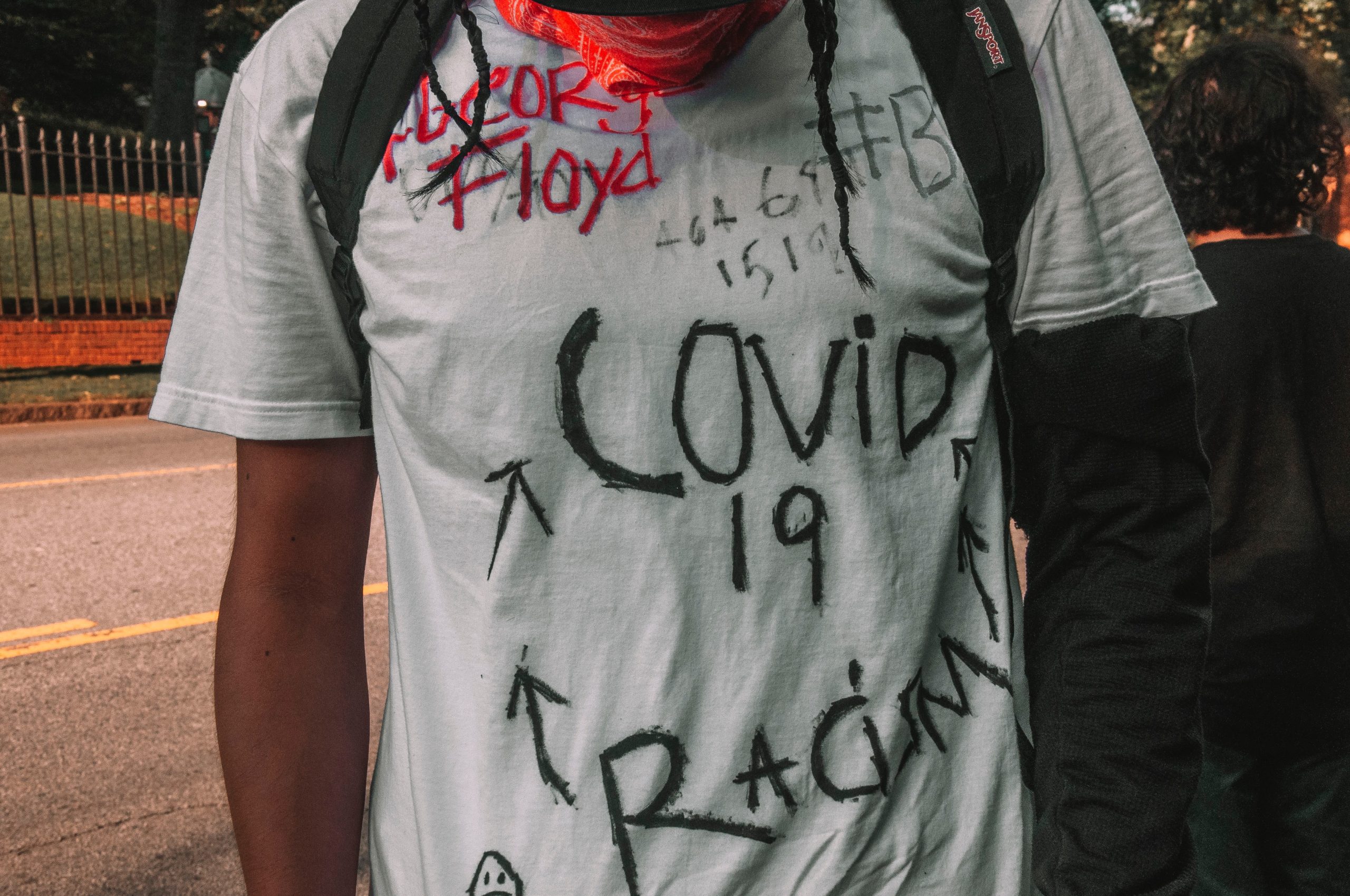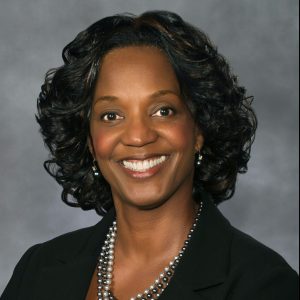Living COVID While Black and George Floyd

By Rev. Dr. Angela S. Duncan (Union-PSCE ’03)
I came home from work in March 2020 to work virtually from my home. I work as a health sciences associate dean and I also teach health sciences courses. My university closed face-to-face classes and moved to a virtual online college experience. At first, I thought “How cool” this is going to be to work from home and still get paid. It wasn’t very long before I realized that everyone did not have the same privilege.
I increasingly became aware that some of our students did not have the internet bandwidth to take their classes online. They also did not have a computer. How could that be? You need to have your own computer to attend college right? Little did I know that some students were relying on the computers in the library which was now closed. My students would email me to let me know they would not be able to complete their homework assignments because their cell phone data plan had run out of minutes and they would not be able to complete their exams. Some other students reported they could not attend class because they had to take care of their children because their daycare was closed. There were some other students who had to take care of older or sick relatives in their multi-generational homes. I found out about the food insecurity of some of our students who were dependent on their food plan or our food pantries at the school. So you see, sending me off to work from home seemed easy for me but so many others didn’t have the same privileges that I had. Soon, not only I but many others realized that there were many disparities that were uncovered during the Coronavirus pandemic of 2019.
I was able to work from home when the message came to “stay home” to prevent the spread of COVID but many front-line workers had to go to work every day or they wouldn’t get paid. My daughter, a physician, couldn’t stay home and her life was put on the line every day as she continuously exposed herself to COVID while reusing her “one-time use” personal protection equipment over and over again. It is through my daughter that I learned that disproportionate numbers of African Americans were dying with COVID in Virginia. Virginia was not unique in that African Americans, along with other people of color, were contracting COVID and dying at higher rates than white Americans.
The Centers for Disease Control (CDC) reports that long-standing systemic and social inequities have compromised racial and ethnic minorities because of determinants like discrimination, lack of healthcare access, low-income occupations, little to no education, and housing location. When COVID was first realized we were told to isolate, wear masks and wash our hands. This is not easy to do if your job requires you to be present in person, public transportation is your only way of travel, or you live in a small living space with many people or multiple generations. What if your income barely pays your mortgage or rent or food with little to nothing left over to purchase what is now a CDC requirement. And then just when we were all trying to adjust to this COVID crisis and coming to the realization that significant numbers of black and brown men and women were continuing to die from COVID, we were traumatized by the murders of Ahmaud Arbery, Breonna Taylor, and George Floyd. It would be the George Floyd murder that ignited into full flame the smoldering embers of an already extremely tense climate.
The death of Mr. Floyd exploded emotions of anger, hate, fear, hopelessness, courage, and a will to fight. The physical and emotional removal of past and current oppressive hate symbols were being torn down overnight. What was allowed to stand to oppress for many generations was dismantled to the cheers of many and the rage of many more. Times were changing because now many could see what had been hidden for years.
COVID-19 uncovered the disparities in the lives and health of black men and women and murder was being caught on camera for everyone to see. The year 2020 revealed more evidence that America did not value Black lives and Black lives certainly did not matter. It was time to break down the structural barriers of racism and oppression that continued to be roadblocks to healthy living which also meant staying alive in America. I asked God “what is it that my soul must have” now in this space and at this time?
Dr. Katie Geneva Cannon would tell us “we must do the work that our soul must have.” For me, it means making sure I am holding current administrators and faculty accountable for racist and oppressive behavior. It means being in the right spaces that are making real change in the system by hiring black administrators and faculty who are able to sit at the tables that shape policy and educates future generations. It means making sure we are admitting more black students and providing support for successful matriculation, graduation and employment into fields that set policies to reverse structural racism and are also entering into fields that provide health care to underserved black and brown people. It means making sure that our curriculums tell the full stories that have been left out of the textbooks.
In the health sciences courses, I teach to future health providers and policy-makers. I use Dr. Katie’s “Dance of Redemption” to teach the history of health care in America. The course content includes discussions about health inequity, social determinants of health, health disparities, and how COVID-19 could take unfair advantage over an already vulnerable population. My students come away fully engaged and working through solutions and answering questions about whether healthcare is a privilege or a right. We integrate topics like COVID, the history of the Tuskegee Syphilis project, and the reasons behind the current mistrust of the COVID vaccine. We look at the intersections of health, racism, police brutality, and historical trauma. Through the pedagogical process of “the dance” we are able to use our awareness of a real problem and be intentional about making concrete changes in the world we live in.
We are doing the work that our souls must have in the professions we are being called to. I gain courage when I see my health professions students marching for social justice. I have hope when my future health care providers tell me about the hard conversations they are having with their family and friends. My faith is strengthened when I know that future health policymakers are writing to current lawmakers about the policies that they want to see changed. I am strong because I stand on the shoulders of my ancestors, the great cloud of witnesses, and those others who have fought the good fight and gone before me.
Hebrews 12:1 The Message Bible
Do you see what this means—all these pioneers who blazed the way, all these veterans cheering us on? It means we’d better get on with it. Strip down, start running—and never quit! No extra spiritual fat, no parasitic sins. Keep your eyes on Jesus, who both began and finished this race we’re in.

Rev. Dr. Angela S. Duncan is Associate Dean for Diversity, Inclusion, and Equity at Virginia Commonwealth University.
Top photo by Maria Oswalt on Unsplash








